Planning worship?
Check out our sister site, ZeteoSearch.org,
for 20+ additional resources related to your search.
- |
User Links
Person Results
‹ Return to hymnal
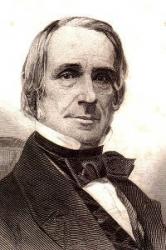
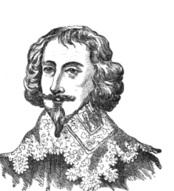

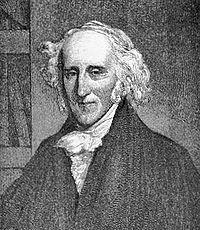
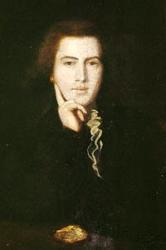
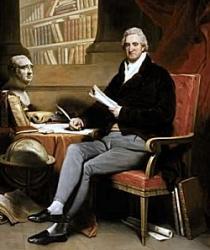
Export as CSV
Samuel Gilman

1791 - 1858 Hymnal Number: 524 Author of "This child we dedicate to thee" in A Collection of Psalms and Hymns for Christian Worship. (45th ed.) Gilman, Samuel, D.D., was born at Gloucester, Massachusetts, Feb. 16, 1791; graduated at Harvard, 1811, and was a tutor there from 1817 to 1819. In 1819 he became the pastor of a Unitarian congregation at Charlestown, South Carolina, and retained the same to his death. He died at Kingston, Mass., Feb. 9, 1858. His hymns include:—
1. 0 God, accept the sacred hour. Holy Communion. Contributed to Dr. Harris's Hymns for the Lord's Supper , July, 1820, republished in Sewall's Unitarian Collection, New York, 1820, and in later collections.
2. We sing Thy mercy, God of love. Holy Communion. Published as in the case of No. 1.
3. Yes, to the [that] last command. Holy Communion. Published as in the case of Nos. 1 & 2. [Rev. F. M. Bird, M.A.]
--John Julian, Dictionary of Hymnology (1907)
Samuel Gilman
George Sandys

1577 - 1643 Hymnal Number: 85 Author of "Thou who dwellest enthroned above" in A Collection of Psalms and Hymns for Christian Worship. (45th ed.) Sandys, George, son of Dr. Edwin Sandys, Archbishop of York, was born at Bishopthorpe Palace, York, in 1577, and educated at St. Mary Hall and Corpus Christi College, Oxford. For some years he devoted himself to travelling in Europe and Asia, and published in 1615 a curious account of his experiences. After visiting America, where he was for a time the Treasurer of the British Colony of Virginia, he became, on his return, a Gentleman of the Privy Chamber of Charles I. He died at Bexley Abbey, Kent, March 1643. His publications included his Traveller's Thanksgiving; the prose work on his travels, A Relation of a journey begun in 1610, &c, 1615; a translation of the Metamorphoses of Ovid; and Grotius's tragedy of Christ's Passion. His productions which most nearly concern hymnology were:—
(1) A Paraphrase upon the Psalmes of David, and upon the Hymns dispersed throughout the Old and New Testaments. London: at the Bell in St. Paul's Churchyard. MDCXXXVI.
(2) A Paraphrase upon the Divine Poems by George Sandys. London: at the Bell in St. Paul's Churchyard. M.DCXXXVIII. This volume contained the Paraphrase of the Psalms, paraphrases upon Job, Ecclesiastes, the Lamentations of Jeremiah, and the Songs collected out of the Old and New Testaments.
(3) His paraphrase of The Song of Solomon was published in 1642. The most available form of these works is the Rev. R. Hooper's reprint of Sandys's Poems, in Smith's Library of Old Authors.
A few only of Sandys's versions of the Psalms are found in modern hymnbooks, although they were set to music by Henry Lawes. His influence, however, upon later paraphrasers was considerable. The following, together with a few others annotated under their respective first lines, are in common use:—
1. How are the Gentiles all on fire. Ps. ii.
2. Lord, for Thee I daily cry. Ps. lxxxiv.
3. My God, Thy suppliant hear. Ps. lxxxvi.
4. Praise the Lord enthroned on high. Ps. cl.
5. Sing the Great Jehovah's praise. Ps. lxvi.
6. Thou, Lord, my witness art. Ps. cxxxi.
7. Thou who art [dwellest] enthroned above. Ps. xcii.
8. You, who dwell above the skies. Ps. cxlviii.
These paraphrases as in common use are in the form of centos.
--John Julian, Dictionary of Hymnology (1907)
====================
Sandys, G.., p. 994, i. Another cento from his Paraphrase upon the Psalmes of David, &c, 1638, as "Let God, the God of battles, rise" (Ps. lxviii.), is in the Hymn Book for Use in Wellington College, 1902.
--John Julian, Dictionary of Hymnology, New Supplement (1907)
George Sandys
John Bickersteth
1781 - 1855 Hymnal Number: 609 Author of "Isr'l's Shepherd, guide me [us], feed me [us]" in A Collection of Psalms and Hymns for Christian Worship. (45th ed.) Bickersteth, John, M.A., son of Henry Bickersteth, surgeon, born at Kirkby-Lonsdale, June, 19, 1781, and educated at the Grammar School of that town, and Trinity College, Cambridge, where he graduated in honours. Taking Holy Orders, he became Vicar of Acton, Suffolk, and subsequently Rector of Sapcote, Leicestershire. He died Oct. 2, 1855. The Dean of Lichfield is his second, and the late Bishop of Ripon his fourth son. In 1819 he published Psalms and Hymns, selected and revised for Public, Social, Family, or Secret Devotion, in which his hymns were included. A fourth edition, much enlarged, appeared in 1832. Of his hymns contributed to his Collection in 1819, the following were transferred to his brother's Christian Psalmody, 1833:—
1. Great God, let children to Thy throne. S. Schools.
2. Hast Thou, holy Lord, Redeemer. H. Communion.
3. Israel's Shepherd, guide me, feed me. H. Communion.
and were thus brought into wider notice than through his own work. No. 3 is sometimes given as "Heavenly Shepherd, guide us, feed us," as in the American Unitarian Hymns of the Spirit, Boston, 1864.
-- John Julian, Dictionary of Hymnology (1907)
John Bickersteth
Mary Ann Roscoe
Hymnal Number: 631 Author of "O let your mingling voices rise" in A Collection of Psalms and Hymns for Christian Worship. (45th ed.) See Jevons, Mary Anne Roscoe, 1795-1845
Mary Ann Roscoe
William Bourn Oliver Peabody

1799 - 1847 Person Name: William B. O. Peabody Hymnal Number: 684 Author of "Behold the western evening light" in A Collection of Psalms and Hymns for Christian Worship. (45th ed.) Peabody, William Bourne Oliver, D.D., twin brother of Oliver William Bourne, was born at Exeter, New Hampshire, July 9, 1799, and educated in his native town and at Harvard College. Leaving Harvard in 1817, he taught for a year at an academy in Exeter, and then proceeded to study theology at the Cambridge Divinity School. He began to preach in 1819, and became the Pastor of the Unitarian Congregation at Springfield, Massachusetts, in October, 1820. This charge he held to his death on May 28, 1847. His Memoir (written by his brother) was published with the 2nd ed. of his Sermons, 1849; and his Literary Remains followed in 1850. "He was a man of rare accomplishments, and consummate virtue," whose loveliness of character impressed many outside his own sect. In 1823 he published a Poetical Catechism for the Young to which were appended some original hymns. He also edited The Springfield Collection of Hymns for Sacred Worship, Springfield, 1835. A few of his hymns also appeared in that collection. His hymns in common use are:—
1. Behold the western evening light. Death of the Righteous, or Autumn Evening. Published in his Catechism, 1823, in 6 st. of 4 1., and again in his Springfield Collection, 1835, No. 484. It is in common use in its original form; also as altered in the Leeds Hymn Book, 1853; and again as altered by George Rawson in the Baptist Psalsm & Hymns, 1858, where it reads "How softly on the western hills."
2. God of the earth's extended plains. Hymn of Nature. This is in Griswold's Poets and Poetry of America, in 6 st. of 8 1. This is thought by some to be the production of his brother Oliver; but Putnam assigns it to William. It is given abbrevi¬ated in a few collections. The hymn "God of the rolling orbs above," in the Boston Unitarian Hymns [and Tune"] Book, 1868, and others, begins with st. v.
3. 0 when the hours of life are past. The Hereafter. This hymn, in 6 st. of 4 1., was given in his Catechism, 1823, as the Answer to "Question xiv. What do you learn of the Future State of Happiness." It is in use in its original form, and also altered as "When all the hours of life are past."
4. The moon is up: how calm and slow. Evening. A poem rather than a hymn, in 6 st. of 4 1., appended to his Catechism, 1823.
5. When brighter suns and milder skies. Spring. Appended to his Catechism, 1823, in 6 st. of 4 1.
The full texts of all these hymns are in Putnam's Singers and Songs of the Liberal Faith, Boston, U. S. A., 1875. [Rev. F. M. Bird, M.A.]
-- John Julian, Dictionary of Hymnology (1907)
William Bourn Oliver Peabody
Mrs. Carter
Person Name: Carter Hymnal Number: 370 Author of "O thou, the wretched's sure retreat" in A Collection of Psalms and Hymns for Christian Worship. (45th ed.)
Mrs. Carter
Thomas Park
b. 1760 Person Name: T. Park Hymnal Number: 82 Author of "My soul, praise the Lord, speak good [well] of" in A Collection of Psalms and Hymns for Christian Worship. (45th ed.) Park, Thomas, F.S.A., was born in 1760 and died in 1835. He was an engraver, but found more congenial work in literary pursuits. In addition to publishing Nugæ Modernæ, an original work of prose and poetry, in 1818, he also edited several works, including the Works of J. Hammond, 1805; Works of John Dryden, 1806; the Works of the British Poets, in 42 small volumes, 1808; Poetical Works of Isaac Watts, 1807, and others.
His hymn:—
My soul, praise the Lord, speak good of His Name, His mercies record, &c, Ps. civ., or Universal Praise, appeared in Psalms & Hymns. Selected from Various Authors, with Occasional Alterations, for Use of a Parochial Church. By a Country Clergyman. London: Bulmer 1807, p. 556, in 5 st. of 8 1. There is appended thereto the following note:—
"At the moment of closing this little collection I am favoured with the above hymn from my obliging friend. This almost extemporaneous effusion of his peculiarly neat and poetic pen was excited by my expressing (in a letter soliciting some psalmodic information) regret that I had only one set of words for Handel's simple, sublime tune for the 104th Psalm."
For these details we are indebted to Miller's Singers and Songs of the Church, 1869, p. 329. The opening line of this hymn is composed of the first two lines of W. Kethe's version of Ps. civ. in the Old Version, 1561.
-- John Julian, Dictionary of Hymnology (1907)
Thomas Park
James Freeman

1759 - 1835 Hymnal Number: 493 Author of "Lord of the world [worlds] below" in A Collection of Psalms and Hymns for Christian Worship. (45th ed.) Freeman, James, D.D. Born at Charlestown, Mass., April 22, 1759, and graduated at Harvard, 1777. He was "the first avowed preacher of Unitarianism in the United States.” In 1782 he was "Reader" in King's Chapel, and assisted or guided that historic parish in its change from Episcopacy to the then new ways in teaching and discipline. In 1787 he was "ordained," and retained the pastorate of the King's Chapel till 1826. He altered its Liturgy, and prepared for its use the King's Chapel Collection of Psalms & Hymns, 1799. Died Nov. 14, 1835. His hymn, "Lord of the worlds below," is based on Thomson's "Hymn on the Seasons." It appeared in the Psalms & Hymns, 1799, and is found in various collections. Original text in Putnam's Singers and Songs of the Liberal Faith,1875. [Rev. F. M. Bird, M.A.]
--John Julian, Dictionary of Hymnology (1907)
James Freeman
William Drennan

1754 - 1820 Person Name: W. Drennan Hymnal Number: 15 Author of "The heaven of heavens cannot contain" in A Collection of Psalms and Hymns for Christian Worship. (45th ed.) Drennan, William, M.D., b. at Belfast, May 23, 1754, and educated at Glasgow, where he graduated M.A. in 1771, and M.D. 1778. He subsequently practised at Belfast. He died Feb. 5, 1820. In 1815 he published Fugitive Pieces in Prose and Verse, Belfast, 1815; and his Poems were collected and published with a Memoir by his sons in 1859. Of his poems six are grouped under the heading of "Religious Poems." Seven hymns, including five of these "Religious Poems," were contributed to Aspland's Unitarian Selection, 1810; but in the 1859 Poems and Memoir most of them are in a longer form.
As most of these are still in common use amongst the Unitarians in Great Britain and America, we subjoin the list of first lines:—
1. All nature feels attractive power. Law of Love.
2. Bless’d who with generous pity glows. Charity.
3. Humanity! thou sent of God. Faith, Hope, Charity.
4. In this fair globe, with ocean bound. Love of God.
5. O sweeter than the fragrant flower. Being Good.
6. The heaven of heavens cannot contain. Divine Worship.
7. The husbandman goes forth afield. Fruits of Benevolence. [William T. Brooke]
-- John Julian, Dictionary of Hymnology (1907)
William Drennan
William Roscoe

1753 - 1831 Hymnal Number: 80 Author of "Let one loud song of praise arise" in A Collection of Psalms and Hymns for Christian Worship. (45th ed.) Roscoe, William, the father, was born March 8, 1753, in Liverpool, of humble origin. After very meagre schooling, and three years of work in his father's market garden, he was articled to an attorney, and subsequently practised in Liverpool till 1796, when he withdrew from the profession. From the first literature was his chief delight, and throughout a long career of public usefulness he united its pursuit with the efforts of enlightened patriotism and the advocacy of higher education and reform. Liverpool was a centre of the old slave-trade, and Roscoe was one of the first to raise his voice against the iniquity. At the age of 20 he had already uttered a protest in his descriptive poem Mount Pleasant, and in 1787 he published a longer poem, The Wrongs of Africa (Pt. ii. 1788), devoted to the subject. During his brief parliamentary experience as member for Liverpool, in 1807, he had further opportunity of advocating the cause of liberty and humanity. His first great historical work, the Life of Lorenzo dé Medici, was published in 1796, and the Life and Pontificate of Leo the Tenth, in 1805. After withdrawing from his legal practice, Roscoe had hoped to be able to devote himself entirely to letters, but the claims of friendship induced him in 1800 to enter into a banking business, which involved him in commercial troubles, ending in 1820 in his bankruptcy. His library had to be sold, but part of it was bought by friends, and presented to the Liverpool Athenæum, which in 1789 Roscoe had been instrumental in founding. In 1822 he published Illustrations of the Life of Lorenzo dé Medici, defending the views adopted in his former history, and two years later edited a new edition of Pope's works, with a life of the poet. He died June 30, 1831. (Cf. The Life of William Roscoe, by his son, Henry Roscoe, in 2 vols., London, T. Cadell, 1833.)
As a member of the congregation of Unitarians meeting in Renshaw Street Chapel, Liverpool, Roscoe took part in preparing A Selection of Psalms and Hymns for Public and Private Worship, printed for their use in 1818. He contributed eight hymns and the concluding anthem. Of these hymns the following are in common use at the present time:—
1. Let our loud song of praise arise. Praise.
2. Go, suffering habitant of earth. Life, a Warfare.
3. Great God, beneath Whose piercing eye. Divine Providence.
4. Thus said Jesus, Go and do. Love to our Neighbour.
5. What is the first and great command ? The Commandments.
These hymns are in several Unitarian collections, including Martineau's Hymns, 1840. No. 3 was written in 1788, as a "secular hymn" of ten stanzas, to be sung at the Benn's Garden Chapel on the Centenary of the Revolution.
--John Julian, Dictionary of Hymnology (1907)
William Roscoe


 My Starred Hymns
My Starred Hymns


